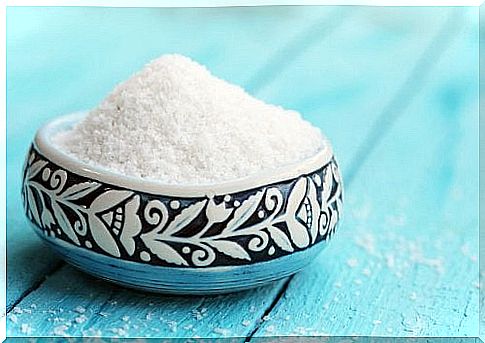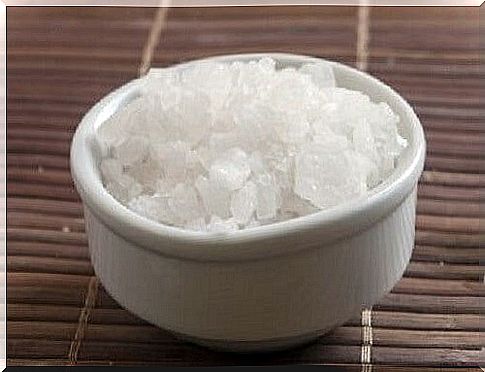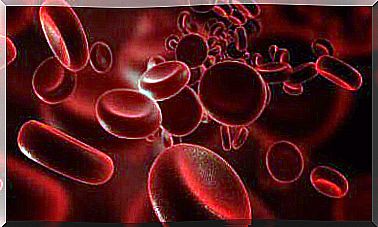The Wonderful Benefits Of Magnesium For The Human Body

The benefits of magnesium for the body are many. It is used to produce energy and synthesize proteins and fats, as well as to regulate muscle and nervous system activity. However, despite its importance, around 75% of the population suffers from magnesium deficiency.
The problem is that the magnesium supply is insufficient due to the poor choice of foods we include in the diet, the exploitation of the soil and the use of chemical fertilizers in agriculture. Find out in this article what are the benefits of magnesium .
What are the benefits of magnesium?
Magnesium is essential for the functioning of hundreds of enzymes in our body, specifically for those that produce, transmit, store and use energy. For example, it is indispensable for:
- The synthesis of proteins that the body needs to multiply and develop cells.
- The activation of the electrical signals through which our body communicates.
- Regulate arterial tension, vascular tone, the transmission of signals between neurons and blood flow.
- The functioning of the muscles.
- The formation of healthy bones, just like calcium or vitamin D .
- The release of adequate amounts of serotonin, a neurotransmitter that regulates, among other things, our mood. Its deficit can in fact cause severe depression.

The connection between calcium and magnesium
Magnesium is much more in short supply in our diet than calcium. However, we pay much more attention to the latter nutritional principle, despite the fact that both are very important for having healthy and strong bones.
Few people realize that calcium needs its magnesium ally to serve the body as well as it should. For example, an excess of calcium could block the absorption of magnesium, which would negatively affect the person’s health.
The two substances should work together as magnesium controls the entry of calcium into each cell. If the amount of magnesium is inadequate and there is too much calcium in the cells, it can lead to spasms, migraines, headaches, anxiety, etc.
Magnesium also promotes the dissolving of calcium in the blood, which helps to avoid the formation of kidney stones. Care should be taken, as taking calcium without magnesium to prevent osteoporosis can promote stone formation.

Why do we suffer more and more from magnesium deficiency?
As we said before, our diets usually don’t have an adequate supply of magnesium. But why does this happen?
For the presence of too refined foods
The food industry greatly reduces the content of magnesium and other nutrients in the food processing process. For example, when wheat is refined to be transformed into white flour, about 90% of the magnesium it naturally possesses is eliminated.
The same happens with the transformation of molasses into sugar, which during the process loses 98% of its magnesium. Even boiling vegetables or freezing them causes the loss of a large part of the magnesium contained in them.
Additives such as aspartame, monosodium glutamate (found especially in Chinese food) and alcohol deplete magnesium reserves.
Indigestion and the use of antacids reduce the benefits of magnesium
If we base our diet mainly on refined foods, we run a much higher risk of indigestion. For this reason, synthetic antacids are often taken which deplete the hydrochloric acid of our stomach and prevent the correct absorption of magnesium.
Agriculture today and the effects on the benefits of magnesium
As mentioned, much of the foods we include in our diet have been grown on land that has seen their reserves of magnesium and several other minerals depleted. In this way, the amount of magnesium that should naturally enter our diet is further reduced, almost non-existent.
Medication and the benefits of magnesium
Many drugs we habitually take such as diuretics, birth control pills, insulin, cortisone and other antibiotics, are the main cause of magnesium waste in our body.
The effects of magnesium deficiency
The following list partially collects ailments or diseases that can be directly related to magnesium deficiency. We can try to combat these ailments by increasing the consumption of this mineral.
- Anxiety and panic attacks. Magnesium helps control the stress hormone and normal brain function.
- Depression. Some experts say that the increase in the incidence rate of depression since World War II may be due to insufficient or reduced magnesium in the soils we grow .
- Asthma. Magnesium relaxes the muscles of the bronchioles of the lungs.
- Constipation. Magnesium helps regulate the movements of the peristaltic muscles of the intestine . In fact, it is very common to take magnesium milk as a remedy for intestinal disorders.
- Diabetes. Magnesium helps insulin transport glucose into cells. If this help didn’t exist, glucose would build up in the tissues, causing glycemic stress and other damage.
- Heart disease. Magnesium deficiency is common in people with heart problems. For this reason, magnesium is an effective treatment for preventing heart attacks and arrhythmias.
- Hypertension. As mentioned, magnesium helps regulate vasoconstriction and blood pressure.
- Insomnia. Magnesium regulates the production of melatonin, the hormone that controls how long we stay awake or sleep.
- Nervous problems. As mentioned, a magnesium imbalance can cause spasms, headaches and even colic.
- Osteoporosis. Without magnesium, calcium could promote osteoporosis rather than fight it.

What Are Magnesium-Rich Foods?
There are some foods which, due to their composition, are particularly rich in magnesium. The data we provide below are expressed in milligrams for every 100 grams of product. Here is a list:
- Almonds: 270 milligrams.
- Cooked beans: 37 milligrams.
- Peanuts: 175 milligrams.
- Green cabbage: 57 milligrams.
- Wheat germ: 336 milligrams.
- Kelp / laminary algae: 760 milligrams.
- Dulse / red seaweed: 220 milligrams.
- Molasses: 258 milligrams.
- Millet: 162 milligrams.
- Wheat bran : 490 milligrams.
- Tofu: 111 milligrams.
As we can see, the foods richest in this nutritional principle are whole grains and vegetables from organic farming, as well as good quality sea salt and algae.
Supplements to get the benefits of magnesium?
When taking magnesium, we need to take into account the amount of calcium we consume throughout the day. The ratio we must maintain is 1: 1 or 2: 1 in favor of football. At most we can take twice as much calcium as magnesium in order to maintain an optimal balance between the two nutrients.
In fact, we are currently getting about 10 times more calcium than magnesium. The ideal would be to maintain a calcium dose ranging from 800 to 14,000 mg per day. In this way, if we take for example 1000 mg of calcium per day, we would need about 500-800 mg of magnesium.
We can find it in different formats. For example, one option is to take a bath with Epsom salt which is very rich in magnesium. In this case, our skin will absorb it to restore its optimal levels.
It can also be taken in capsules, in small doses to be taken twice a day. You can adjust the amount needed, always trying to keep the right balance between calcium and magnesium.
The daily dose should be divided into two parts, because when the limit is exceeded, diarrhea phenomena can occur. For this reason, it is always best that the intake of these supplements be supervised by a nutritionist.
Primary Source: Woman-to-Woman Medical Guide. By Christiane Northrup.









